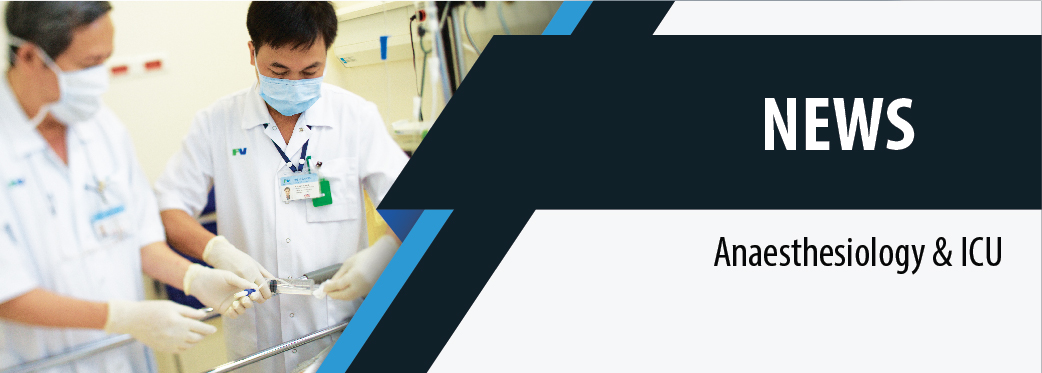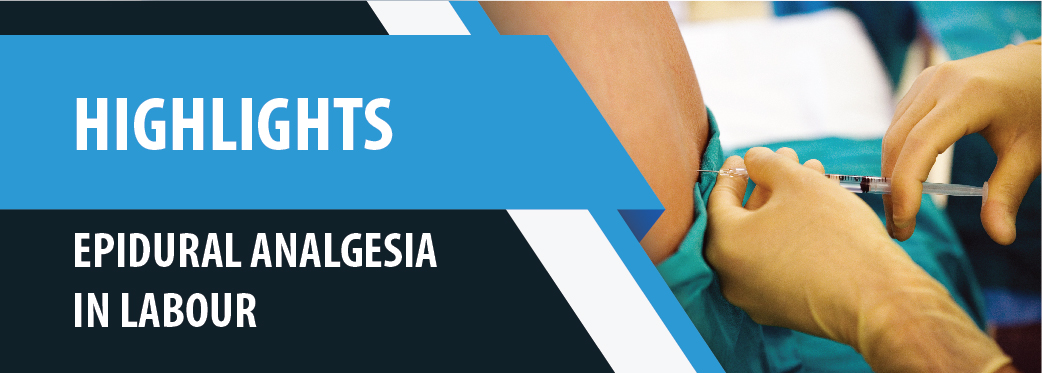What is an Anaesthesiologist?
The anaesthesiologist and his specialist team are essential to the daily running of the hospital, without them the hospital would virtually close down. The anaesthesiologist is indispensable to any surgical activity, and also to many other procedures such as gastro-intestinal and obstetrics (epidural for painless deliveries).
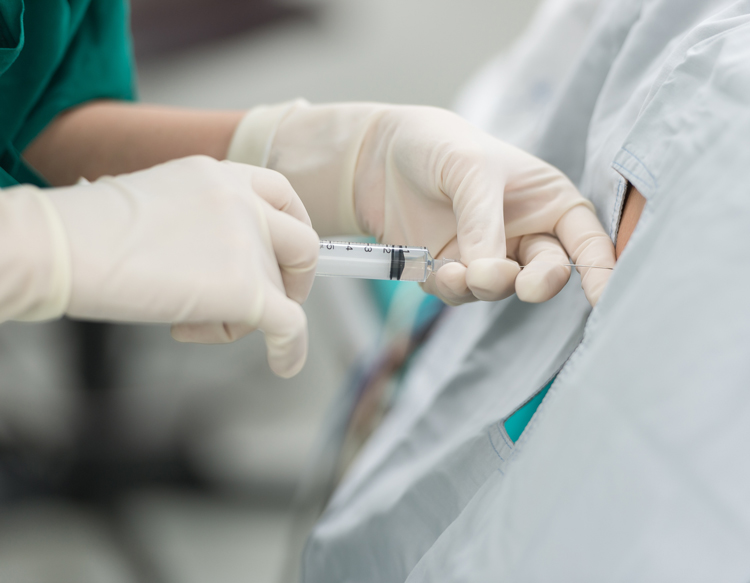
The FVH Anaesthetists and their teams have studied and trained in leading European institutes in the various sub-specialties of anaesthetic care. They are expert in providing peri-operative care management for patients, as well as, treating acute cases in ICU and dealing with all aspects of pain management.
Their scope of work is huge as they work in all areas of the hospital:
- Consultations in the Out-patient Department
- Operating Theatres
- ICU (Intensive Care Unit) and USC (High Surveillance Unit)
- Gastro-intestinal Department (endoscopies)
- Obstetrics Department (epidural anaesthesia), and
- Follow-up of hospitalised surgical patients
There is at least one anaesthesiologist on duty at the hospital 24 hours a day
For the anaesthetists, a large part of their time and expertise is focused in these two crucial areas of responsibility.
Pre-surgical Anaesthesia Assesment
You will need a consultation with the anaesthetist doctor before any surgery, at this time he, or she, will assess which type of anaesthesia is best for you. Your doctor may prescribe certain tests prior to surgery (not included in the price of your surgical package), and will explain the type of anaesthesia you will receive and side-affects, if any.
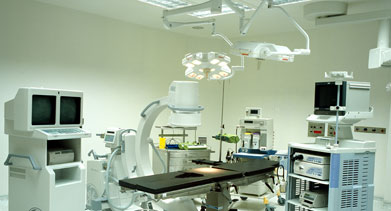
Operating Theatres
Anaesthetists works mostly in the Operating Theatres (OT) where they administer local, regional or general anaesthesia to all types of patients, including babies; supervise the array of anaesthetic dispensing equipment, utilise sophisticated monitoring systems to ensure the safety of patients whilst they are under anaesthesia and take care of patients during the recovery period.
In a busy city hospital, Operating Theatres are a vital component to the efficient running of the overall facility. And, at FV Hospital, such is indeed the case. The FVH Operating Theatres are modelled on the most advanced facilities in the western world. Located on the 2nd Floor, the design and placement of our 9 Operating Theatres evolved from the strict analysis of the circulation flow of staff and patients, optimizing every link connecting each department to the central Operating Theatre area. This ensures maximum efficiencies during daily procedures and especially so during emergencies.
The Operating Theatres are all fully equipped with the most advanced medical technology available: Zeiss operating microscopes, surgical cameras, EOC C-arms, Aesculap surgical instruments, anaesthesia machines, Draeger respirators, Marquette monitoring systems, imaging equipment, all carefully serviced by the FVH Biomedical Engineers and FVH suppliers, to assist our specialist teams in conducting a wide variety of procedures, as well as all manner of trauma cases seen in the Accident & Emergency department. The Operating Theatres is closely supported by the specialist services of the Imaging, Laboratory & Blood Bank and Pharmacy Departments.
At all times, internationally accepted procedures and guidelines for waste management, cleanliness and hygiene are strictly adhered to: implementation for sterilization procedures and infection control is maintained using Getinge autoclaves and sterilizers.
An UPS (uninterrupted power supply) ensures a continuous electricity supply, even during the event of a local mains power outage. All Operating theatres and recovery Rooms at FVH are equipped with state-of-the-art equipment and fittings, including air and fluid warming systems to reduce patient discomfort and to lessen the risk of hypothermia. The heat and moisture exchange systems are fitted with bacterial and viral filtration systems
Post-surgery Follow-up
After your operation, you will be taken to the recovery room. Here you will be monitored until you are awake and well enough to leave (usually for one or two hours).Supervision and monitoring of the patient’s recovery in the surgical ward during the days following the surgical procedure. Some patients must stay in intensive care unit (ICU) where patients receive extra monitoring after their operations. This is planned for some surgical packages which include a post-surgical stay in ICU but can also happen when surgery has been unexpectedly long or complicated, as deemed necessary by the anaesthesiologist. If your surgery package does not include a stay in ICU, there will be an additional charge for this care.
Pain Management (PCA)
The dedicated FVH Anaesthesia Team can control post-surgical pain using various modalities of treatment and new equipment. For example, to help control and minimise pain, Patient Control Analgesia (PCA) with opioid medication, Epidural Analgesia and other types of nerve blocks can be offered to patients who have undergone major surgery.
Please alert your nurse if you are in pain, or if your medication does not seem effective. Your nurse will ask you to rate the pain on a scale of 0 (no pain) to 10 (very bad pain). We appreciate that pain is very distressing and not conducive to the healing process. As such, the policy of FVH is to not let any patient experience pain. We rate pain control as a priority.
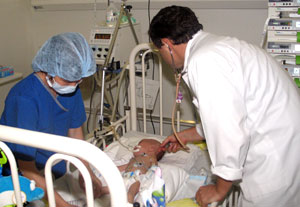
The intensive care unit (ICU) is a special department at FV Hospital that provides a full spectrum of critical medical services to the sickest of patients. Patients who are admitted to the ICU have one or more vitally distressing conditions, are general unstable, and need careful constant monitoring and specific critical care. Typical ICU patients are those who have just had major surgery; severely injured patients due to a traumatism; patients who present an acute organ failure, such as respiratory failure, heart failure, renal failure, and patients whose conditions are not so severe but could develop complications and rapid deterioration medically due to the original disease.
For these patients, time is of the essence – one could die in minutes if accurate care is not provided, therefore precise techniques and treatment plans are critical in maintaining the patient’s lifeline. Several highly skilled techniques are mostly used specifically by the ICU specialist, monitoring accurate and precise level of blood pressure by invasive artery catheterization; inserting a special device that allows deep access to the vein to administer powerful intravenous medications, such as vasopressors or inotrops to maintain an acceptable level of blood pressure; maintaining an adequate level of oxygenation to patients by artificial ventilation via a facial mask (non-invasive ventilation) or by a tracheal tube where the patient needs to be anesthetized and into a sleep induced state.
Our anaesthesiologists are on duty 24-hours a day to provide for our ICU and USC patients’ care
- USC – Close monitoring of patients requiring a higher level of post-operative care. Under the supervision of the anaesthesiologist, one nurse tends to four beds.
- ICU – Special care and observation of patients following complicated surgery, or infectious patients. All of our ICU rooms are designed to accommodate one patient only to ensure optimal control. The ICU as a whole is organised for the greatest possible patient security, a central nursing station allows for personalised observation of each patient. Each room is equipped with its own Marquette monitors, Draeger ventilators, Fresenius infusion pumps and Matifas electrical bed. Our highly skilled ICU nursing team keep close observation of the rooms (1 nurse per 2 patients) 24-hours a day.
The ICU team is ready at any time to take charge of any eventual distress; it is definitely a team job where the anaesthesiologist is the conductor. All members of the team are important, from porters to care assistants, to nurses and doctors. Advice from other colleague doctors/surgeons, radiologists, cardiologists etc., can be obtained easily when necessary. Furthermore, the ICU team is ever aware of the patient’s family and relatives’ state of mind. Explanations regarding a patient’s treatment and medical status can be obtained on an appointment only basis by the ICU doctor-in-charge.
To summarize, it could be said that ICU have the ability to support the main vital functions: respiratory, cardiac, renal, neurological, etc. It is the one place in the hospital where patients in a very critical condition have the highest chance to recover.
No results found...


